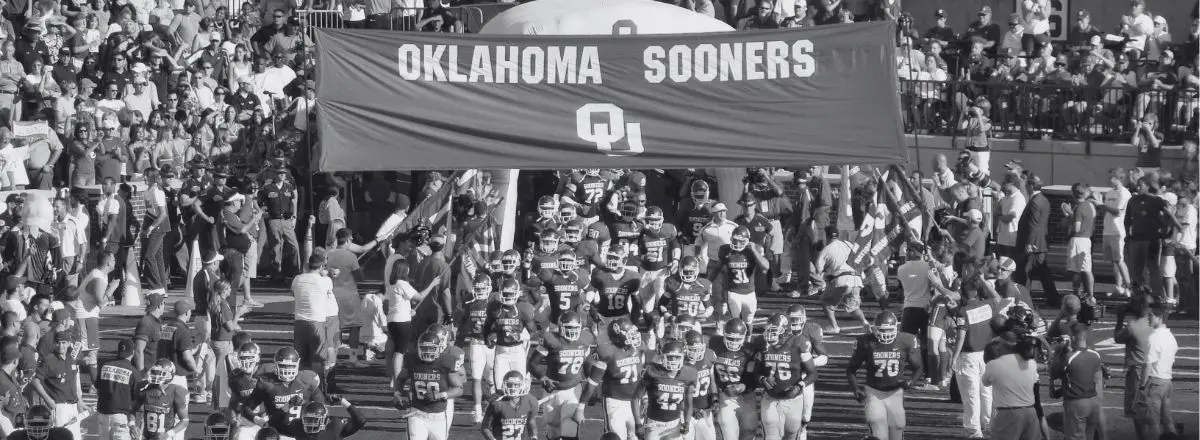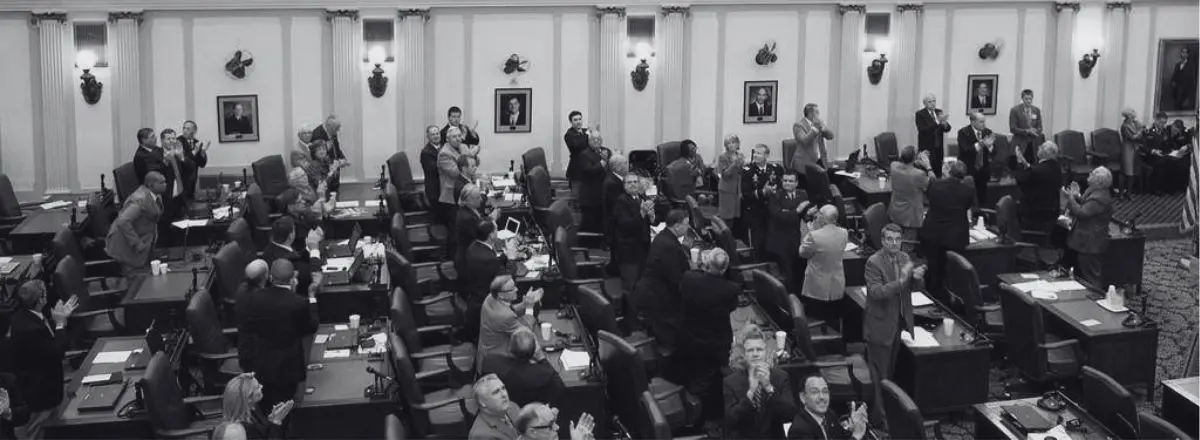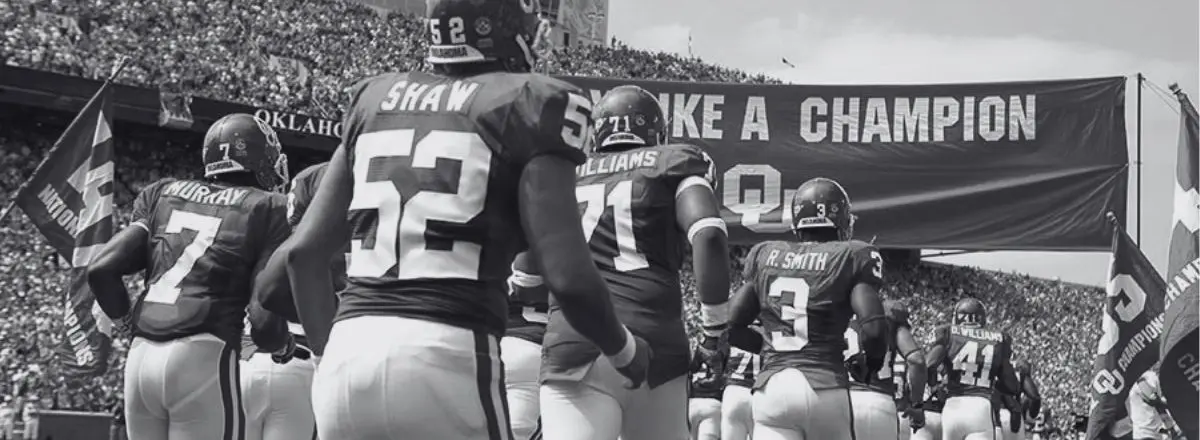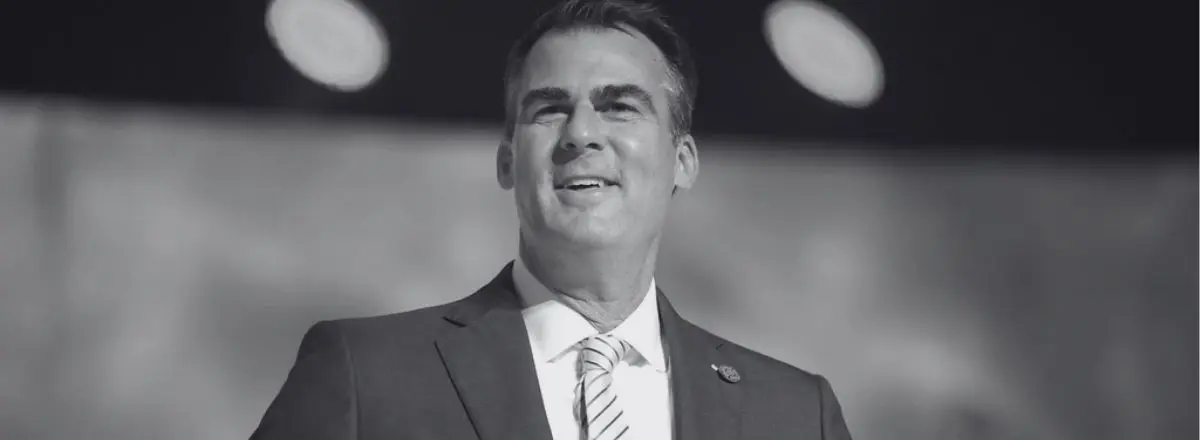Oklahoma Sooners quarterback John Mateer has a message for anyone who thinks he may have bet on sports: He absolutely did not.
“The 21-year-old signal-caller, who officially transferred to Oklahoma this past December, posted the following message on his X (formerly Twitter) account after many took some of his Venmo transaction descriptions as proof he was betting on sports:
“The allegations that I once participated in sports gambling are false. My previous Venmo descriptions did not accurately portray the transactions in question but were instead inside jokes between me and my friends. I have never bet on sports. I understand the seriousness of the matter, but recognize that, taken out of context, those Venmo descriptions suggest otherwise. I can assure my teammates, coaches, and officials at the NCAA that I have not engaged in any sports gambling.”
Is this one of the most “Welcome to 2025, folks!” stories ever? We’ll let you decide.
But in all seriousness, the furor over Mateer’s transaction descriptions wasn’t because sports betting in Oklahoma remains illegal. On the contrary, these transactions predated his time with the Sooners. Mateer spent the past three seasons suiting up for Washington State University.
Now, when framed this way, many may not understand the uproar. After all, sports betting in Washington is legal. It launched all the way back in 2020.
Still, for Mateer’s purposes, this doesn’t matter. NCAA athletes are explicitly banned from betting on sports. It does not matter whether they are of legal age, wagering on a sport that’s not their own, or in a state that offers legal gambling. The NCAA guidelines strictly prohibit all forms of sports betting among collegiate athletes no matter what. This is why Mateer needed to provide clarification on his transaction descriptions.
Breaking Down the John Mateer Sports Betting Saga
If you have made it this far and are wearing a bemused expression on your face, we do not blame you in the slightest. This entire soap opera can be tough to follow. Fortunately, Cody Williams of MSNBC breaks down all you need to know about the Mateer sports betting scandal:
“John Mateer had the dubious honor of trending on social media on Monday night after the new Oklahoma Sooners quarterback's Venmo history caused quite a stir. First pointed out by the Barstool Longhorn (a Texas fan account), Mateer had three transactions from 2022, his freshman year at Washington State, that were labeled ‘sports gambling.’ Obviously, given that the NCAA prohibits athletes from betting on collegiate games, that sent the college football world into a tailspin wondering what was going on, how Mateer could be that clueless, and with rivals ready to pounce. The Oklahoma signal-caller only seemed to make the controversy worse when he then made his Venmo transactions private, only further fueling speculation from Texas fans and other rivals that he indeed had bet on sports.”
This is all how we wound up with John Mateer releasing his social media statement. And for what it’s worth, his explanation appears to suffice.
Oklahoma noted on its own X account that they are “unaware of any NCAA investigation” and have “no reason to believe there is one pending.” This is a breath of fresh air for Sooners fans. John Mateer profiles as their starting quarterback. Entering the year as the subject of an investigation would have no doubt put a damper on the season.
Fans of rival teams have naturally called for a probe into these transactions. It’s tough to believe this situation warrants one. Yes, the allegations in a vacuum are serious. But Mateer’s explanation is more than plausible.
This Ordeal Does Spotlight Concerns About NCAA Betting
Of course, while this particular instance doesn’t appear to carry a ton of weight, it does emphasize one of the growing concerns over online sports betting in the United States.
Opponents and skeptics believe the rise of sports gambling will invariably give way to more scandals. In some ways, they are correct. We have seen more investigations into athletes and team-affiliated personnel over the past few years. Most recently, in the NBA, Malik Beasley was—and might still be— the subject of a federal investigation involving suspicious activity during the 2023-24 season. These probes are not specific to any one league, either. We see them across all major North American sports, including football, baseball, and hockey.
Staunch opponents want to see sports betting eradicated entirely. Reactions to the John Mateer allegations were nothing if not proof of that much. But realists understand that sports betting in the USA isn’t going anywhere. Pro sports leagues, teams and players, along with individual states, are making too much money off its revenue.
Others, however, are taking a more pragmatic approach. For example, NCAA president Charlie Baker is advocating for a complete ban on player prop bets. Some states scoff at the suggestion. Places like Ohio are giving it real consideration.
Advocates believe this can cut down the temptation for athletes to impact the results of betting lines. That makes sense. Player props have to do with an individual’s performance. They are the wagers over which athletes have the most singular control.
At Least We Can Kind of Laugh at the John Mateer Discourse
Despite the severity of the allegations and the tough sports betting discussion we must continue to have, the John Mateer debacle can be a source of levity.
Sure, it is a reminder that NCAA athletes are always under the spotlight. It also reinforces how slippery a slope sports betting can be. The reaction to the accusations acknowledges such behavior is problematic and, in turn, demands supporters and operators reconcile with it.
Still, Mateer’s explanation specifically doesn’t create a dilemma. Who among us has not used inside jokes on their Venmo history? And if you really want to get into it, why would he use “sports betting” as part of the description on public transactions if he was actually betting on sports?
This is one instance in which we can all shrug off the allegations. The saga has turned out to be more comical than telltale. It won’t always be that way. Heck, it may seldom be that way. This time, though, it is that way.
Take a look at this list of the top online sportsbooks so you can find one that works for all of your sports betting needs:
-
EXCLUSIVE BONUS
 50% bonus up to $250Play Now
50% bonus up to $250Play NowT&C apply, 18+, Play responsibly
-
EXCLUSIVE BONUS
 125% up to $1,250Play Now
125% up to $1,250Play NowT&C apply, 18+, Play responsibly
-
EXCLUSIVE BONUS
 225% up to $3,625Play Now
225% up to $3,625Play NowT&C apply, 18+, Play responsibly
-
 50% bonus up to $250Play Now
50% bonus up to $250Play NowT&C apply, 18+, Play responsibly
-
 125% up to $2,500Play Now
125% up to $2,500Play NowT&C apply, 18+, Play responsibly












